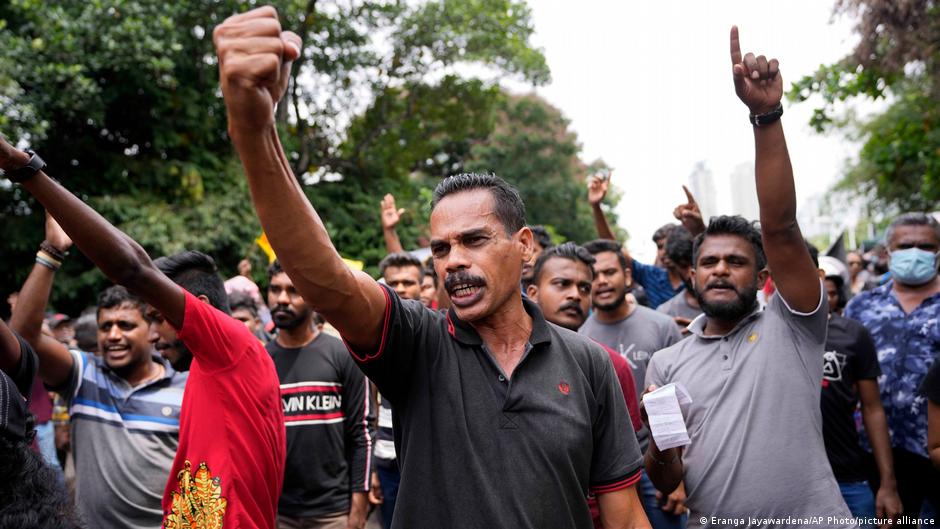Black flags have been raised across the country as millions of workers go out on strike in Sri Lanka. President Gotabaya Rajapaksa continues to ignore calls for him to step down.
Offices, factories and public transport across Sri Lanka were left empty and at a standstill on Friday as millions of public and private sector workers took part in a nationwide strike to protest the government's mishandling of an ongoing financial crisis.
The strike was called by trade unions and civil organizations. Calls for President Gotabaya Rajapaksa to resign have continued unabated.
Almost all public and privately run transport services were canceled. Over 3,000 factory workers from Sri Lanka's main export processing zone also joined the strike.
"We can pinpoint the policy blunders of the president that led to this very sorry state of our economy," said trade union leader Ravi Kumudesh. "He must go."
Rajapaksa refuses to give in to protests
The president has refused to step down despite the presence of protesters camped outside his office in Colombo for almost a month, as well as a series of large-scale demonstrations.
On Thursday, a group of students that tried to storm the national parliament was met with tear gas fired by police.
Government mismanagement and the coronavirus pandemic have sunk the island country into its worst economic crisis since Sri Lanka achieved independence in 1948.
The financial crisis has led to shortages of fuel, food and pharmaceuticals resulting in repeated blackouts and increasing hardship for the island's population.
The crisis comes as rising food and fuel prices have been increasing globally, in part due to the Russian invasion of Ukraine.
Economic hardships set to continue
The opposition in parliament has so far been unable to oust Rajapaksa from office.
Opposition leader Sajith Premadasa said on Friday that they would introduce a no-confidence vote against the president and his government next week.
The president has made repeated calls for a unity government and has made no signs of letting go of power.
Last month, Rajapaksa reshuffled his Cabinet, removing some of his family members from positions of power, but keeping his brother Mahinda Rajapaksa as the country's prime minister.
The government also announced last month that it was defaulting on its $51 billion (€48.3 billion) foreign debt after running out of US dollar reserves.
Sri Lankan Finance Minister Ali Sabry said earlier in the week that the economic difficulties will likely last for another two years.












